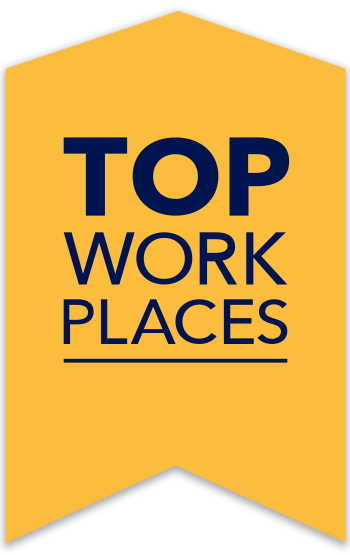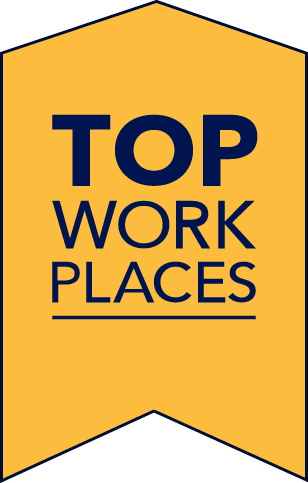Do you love your job? You should. After all, a full-time job dominates most of your waking hours. And because what you do has a significant impact on how you feel, work has a lot to do with your state of mind.
People who enjoy what they do for a living experience less stress and anxiety. They’re also happier, more productive, and motivated. When you love your job, there’s a ripple effect that enhances relationships, increases your energy to pursue your interests, and improves physical health.
The importance of being passionate about your work
Loving your work isn’t only about meeting your emotional needs. It’s also key to your success. When your job is a source of personal satisfaction (and not just a means to make money), you will experience:
- Better focus
- Performance improvement
- Motivation and engagement
- Increased creativity and innovation
- Better accuracy and reduced errors
- More energy
- Improved resilience
- Ability to achieve goals
Don’t discount the benefits to your personal life, either. Learn how to find a job you love, and you’ll be more successful in life in general.
When you feel energized, you are more likely to engage in activities that make you feel better. Finally, the success you experience at work can lead to better financial health.
The negative effects of hating your job
“Don’t focus on finding a job you like. Focus on paying the bills instead.” Sadly, this is a common sentiment used to encourage people to make safe career choices. Worse, it exploits people’s fears who may already feel stuck in jobs they hate.
It’s already difficult to push past hurdles, such as financial obligations, lack of marketable skills, weak job market, or simply not having the time to pursue new opportunities. Here are just a few of the effects of hating your job:
- Fatigue and irritability
- Stress and anxiety
- Weight gain
- Increased risk of illness, including heart disease
- Lack of motivation
- Lower self-worth
- Relationship difficulties
Any one of these things should be enough motivation to learn how to find a job you love. When you think of all of these things combined, it’s clear that no job is worth destroying your health, relationships, or well-being.
12 tips to help you find a job you’ll love
If you are unsure how to find a job you love, this section is for you. Here are 12 helpful tips to guide you through understanding what you want in a career or position – and then going after it.
Before you begin, it’s essential to understand that learning how to find a job you like requires some self-reflection. Take time to consider your interests, skills, the changes you’re willing to make, and the lifestyle you want to live to know what to look for in a job that will be right for you.
1. Think about the things you love to do
What activities bring you the most joy? Take time to reflect on this. Include passions you may have stopped pursuing because your current job doesn’t give you the time or opportunity to do so. Ask yourself the following questions to explore this further:
- What are my passions?
- What are my talents?
- What do I want to get out of the work I do?
- What are the things I enjoy about my current job?
Keep an open mind. Consider taking some quizzes and assessment tests. These can help you identify your interests and talents. You might find some abilities you didn’t know you had.
2. Consider the lifestyle you want to live or maintain
While following your passion is important, you won’t find happiness in a job that doesn’t support your desired lifestyle. Think about the hours you want to work, where you would like to live, and the interests you plan to pursue outside of work. Seek jobs that meet your lifestyle requirements.
3. Think about your ideal company culture and work environment
Company culture combines values, attitudes, and policies companies express through their work environment and managerial style. To answer the question “How to find a job I love doing?” you must first identify your ideal culture.
Look to companies – such as Top Workplaces – that have earned employer recognition as an employer of choice. These award-winning companies prioritize a people-first culture and strive for workplace excellence.
Learn More: What Makes a Company a Great Place to Work?
4. Hold off thinking about pay
There’s no denying that salary is important, and you should never pursue a job that doesn’t pay enough to survive. But placing too much importance on salary during your job search can cloud your judgment and lead to a wrong-fit decision.
Set a salary range that includes both a minimum and a cap. Then, focus on the other details that will lead you to the best opportunity.
5. Enlist the help of a mentor or career counselor
A career counselor or professional mentor can help you accelerate your job search. They can help you perfect your resume, hone your resume skills, and get you over roadblocks. A great career counselor will also help you identify possible jobs that fit your personality and experience.
6. Gain new skills and experience
There’s a practical side to figuring out how to find a job you love. Formal education can be a great start. However, it’s not your only option. You can also start by building foundation skills. Consider apprenticeships, free online training via learning platforms like Coursera, part-time gigs, and anything else to help you level up.
7. Build your personal, professional brand
You know the field you’re passionate about and the types of jobs you want to pursue. Now consider your personal brand. Be intentional about conveying an image to potential employers and coworkers.
Eliminate anything that doesn’t serve your goals and focus on those that do. Think about your social media presence and the reputation you’ve curated for yourself. Update your online presence to include professional achievements, new skills, educational milestones, and more. Strive for a positive and purposeful presence. Combined, all of these elements make up your brand.
8. Get inspiration from your professional heroes
Do you know someone who has taken an inspirational career path? Consider this a person a model to follow. Use their journey to motivate your pursuit of finding a job you love.
Learn the skills they developed and how they worked towards achieving their dreams. Keep in mind that no two career paths are the same. You won’t reach your goals by copying another person.
9. Create a list of companies you want to pursue
Are you eyeing specific companies for a new opportunity? Put effort into considering this and then make a list of targeted companies. It will help you focus as you determine which opportunities to pursue. You will also learn some essential things about your values and priorities.
10. Leverage your professional network
Your professional network is a critical asset in a job search. There is a hidden job market that almost entirely hinges on professional networking. If you’ve made strong connections with coworkers, friends, former employers, associates, and your alumni network, spread the word of your job search. You’ll be surprised at the recommendations and advice you receive.
You can also pursue more formal professional networking opportunities. Be on the lookout for industry associations that meet in your area, networking dinners, or related events. Make plans to attend with your business cards in hand.
11. Ask your family or friends for their opinions and feedback
While you should never base your choice in career on the views of others, people you trust can help give you clarity. Ask them for their honest opinions. Can they picture you doing this work? If you can, ask some trusted coworkers, as well.
In addition to helping you assess the match between the opportunity and your personality and capabilities, friends and family members can offer additional insights. Perhaps they are familiar with the local job market or field that interests you. Their knowledge can help determine how to find a job you like.
12. Be patient and make sure the job is a good fit
It can be tempting to accept the first job that offers a great paycheck or opportunities for advancement. But to find a job you love, you have to take a more holistic view.
The job that is the ideal fit will align with your values and offer meaningful work. Before jumping in, evaluate the workplace culture, managers, company purpose, and vision.
Top Workplaces makes it easier to find a job you’ll love
It isn’t easy to find a great place to work. You have to set priorities, take an honest look at what you want, and learn to present yourself in the best light.
Take some time to explore Top Workplaces awarded companies. These companies are highly rated by the people who know them best: the employees. Conduct your search based on what matters most to you, whether it’s the industry, culture, work-life flexibility, or benefits. That’s how you’ll find a job you’ll love.
Does your company deserve recognition for its people-first culture? Nominate your organization for Top Workplaces, the program that offers awards in 60+ regional markets as well as national awards for culture and industry excellence.

 Stand out with an award-winning
Stand out with an award-winning